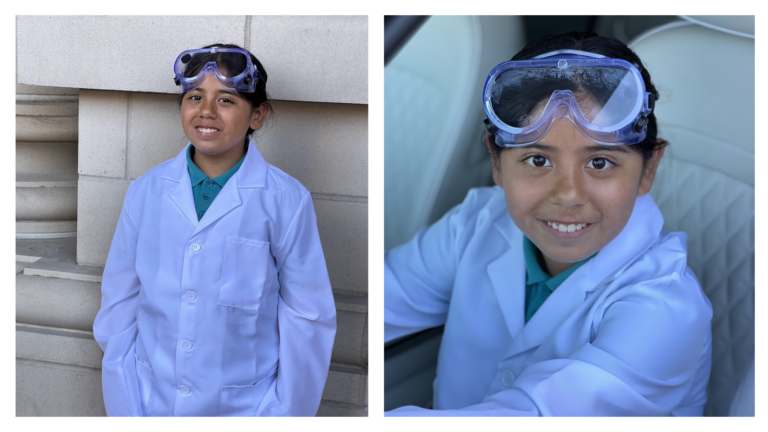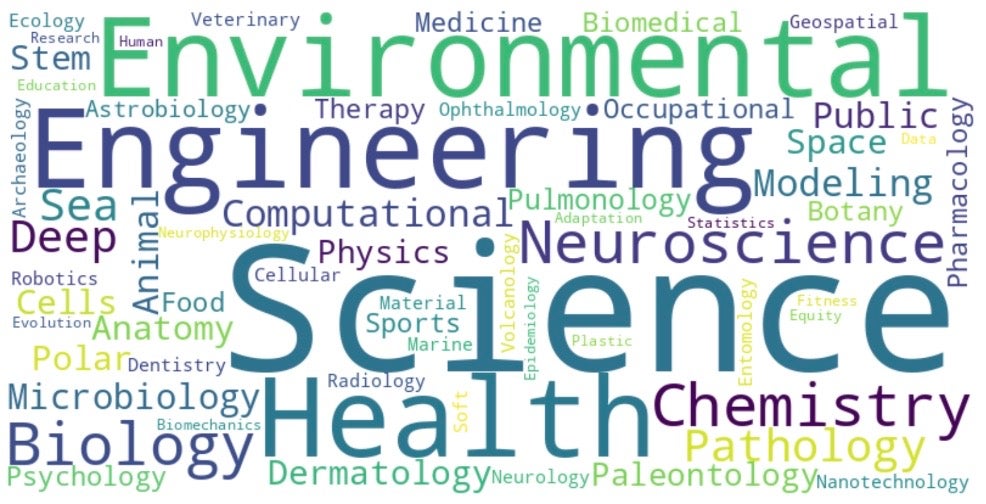
Sophia Plancarte, a dedicated student who has been with Virtual WonderKids since its inception during the COVID-19 pandemic, actively engaging in STEM learning and exploration throughout the program’s evolution. Photos by Kathrin Rising.
Inspiring Young Innovators: The Virtual WonderKids Journey of STEM Exploration and Growth
Virtual WonderKids was created in response to the COVID-19 pandemic, offering a solution to continue hands-on STEM education despite the challenges of remote learning. Hosted on Zoom, the program ensured students could fully participate by mailing supplies directly to their homes, all cleverly designed to fit within an 8.5 x 11 envelope. Virtual WonderKids was designed as a 8-week program, featuring six different STEM fields each semester. The semester is bookended with an introductory week focused on general science concepts and concludes with a Family Showcase, where students present their work and celebrate their learning journey.

Sophia Plancarte, a 5-year participant in the WonderKids STEM program, lights up when talking about her Wonderkids experience. “I want to be an inventor! I want to invent a toy for cats that won’t hurt your arm,” she shares enthusiastically. Reflecting on her favorite activities, she highlights the engineering unit where they built airplanes and recalls the fun of constructing projects from cardboard boxes. Sophia’s mother, Pat Perez, has observed her daughter’s growth through the program, noting that both of her daughters participated and found it enriching. “I really appreciated the virtual aspect of WonderKids because it made the logistics easier. My oldest daughter, Nicole, was inspired by WonderKids and now captains the Robotics Team at Foshay.” Pat fondly remembers Sophia dressing up to match the lesson themes, such as wearing dinosaur shirts for the paleontology unit. Though initially inspired by paleontology, Sophia’s interests have evolved, and she’s now more focused on engineering and designing roller coasters. Sophia started as a first grader in 2020 and will graduate from Wonderkids in Spring 2025.

Virtual WonderKids Facts
Leadership Staff:
The success of Virtual WonderKids has been supported by dedicated leadership staff, including Jasmin Sanchez, Brooke McMahon, Emma Case, Lindsay Huerta, Maya Yanez, Nandini Patel, Preyashi Poddar, Charles Lehnen, Kelsie Campbell, Andrea Morfin Valencia and Jessica Stellmann.
Speakers:
The Virtual WonderKids program has hosted 52 speakers from various STEM fields, including notable names such as Martha McMahon, Dr. Dijanna Figueroa, Dr. Darin Gray, Dr. Stacey Finley, DJ Fernandez, Dr. Lourdes Baezconde-Garbanati, Dr. Sian Proctor, Dr. Kat Bay, and more.
Topics Covered:
Over 50 diverse topics have been explored, including Pathology, Deep Sea Exploration, Engineering, Computational Modeling, Microbiology, Public Health, Space Science, Astrobiology, Volcanology, Radiology, Neuroscience, and Data Science in Health Equity Research, among many others.
Program Hours:
Since its inception in Fall 2020, the Virtual WonderKids program has provided 288 hours of STEM engagement. Each semester includes 32 hours of instruction (8 weeks per semester, 4 hours per week), and there have been 9 semesters from Fall 2020 to Fall 2024.
At-Home Experiments and Supplies:
The program emphasizes accessible, hands-on experiments. For example, many experiments use common household items like paper rolls, making STEM education approachable without requiring specialized, hard-to-find materials.